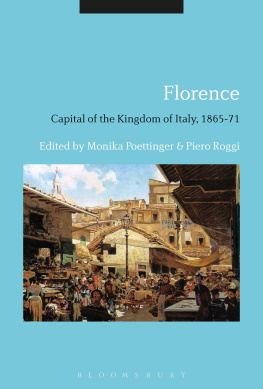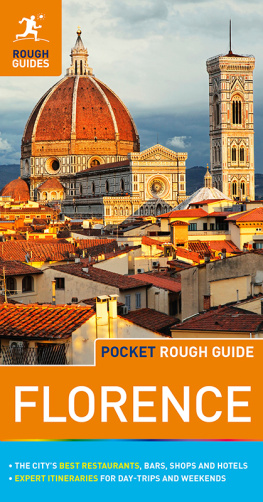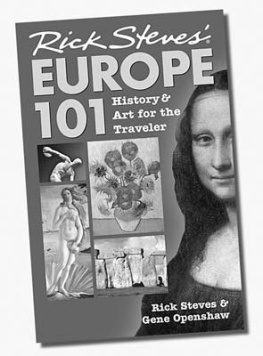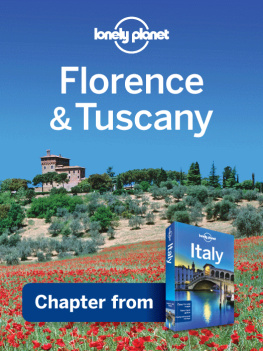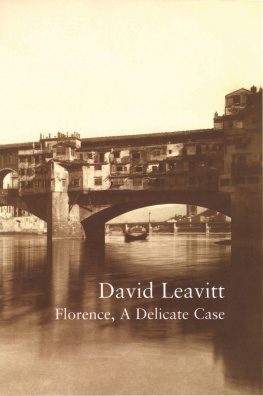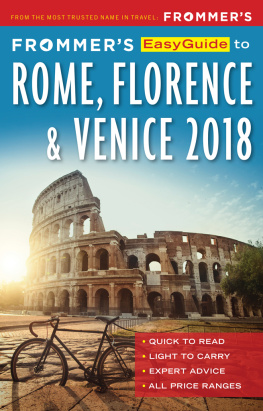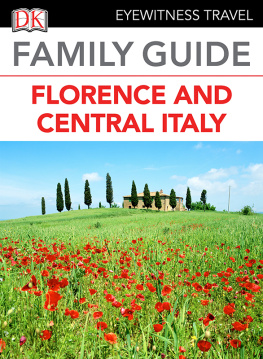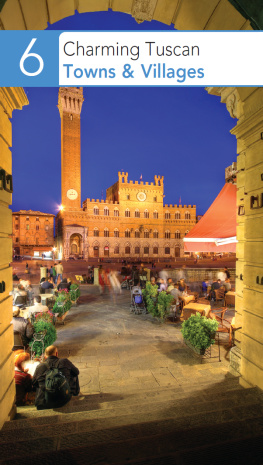
Florence
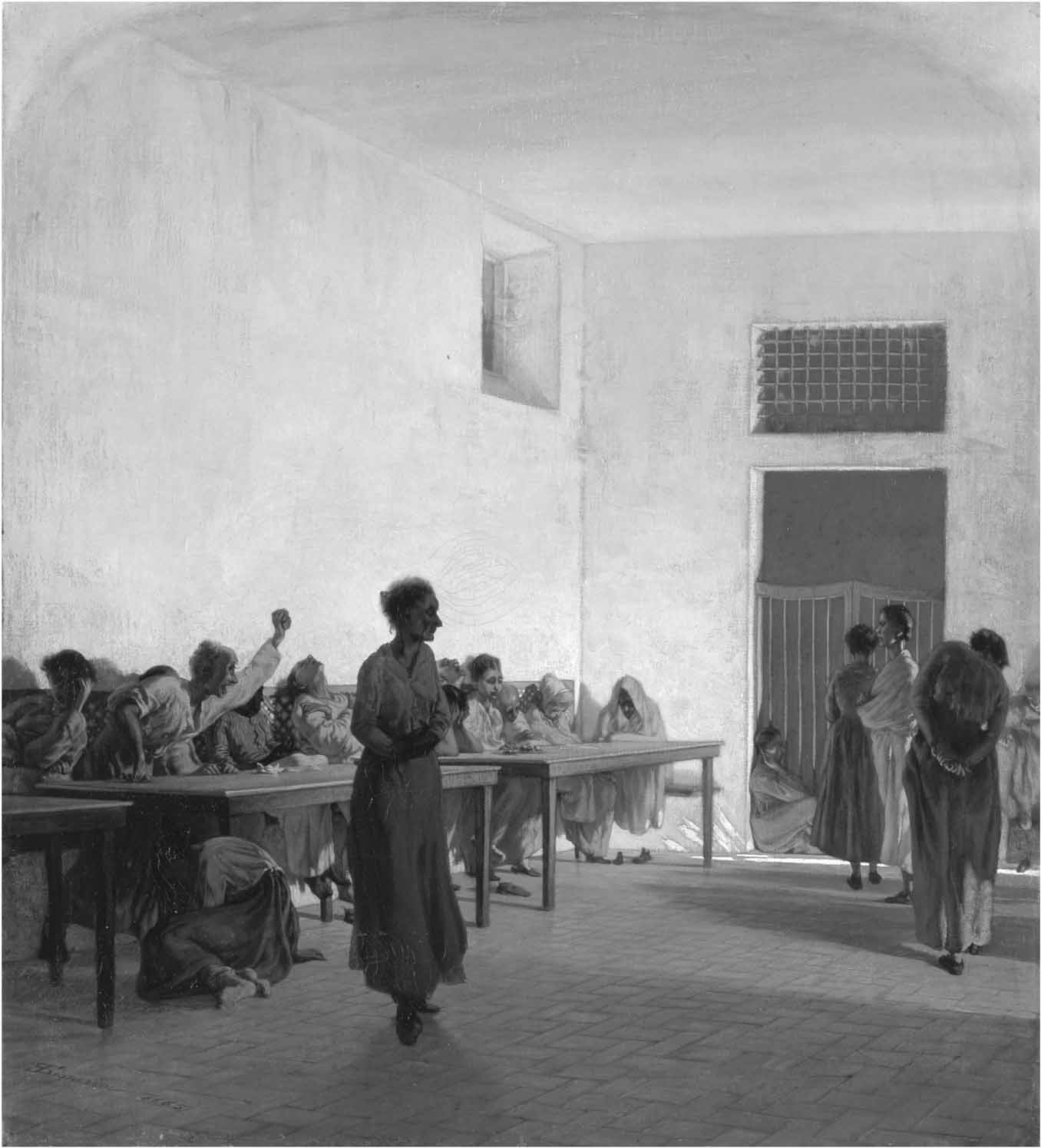

Contents
Francesco Ammannati holds a PhD in Economic History. His main research field is the pre-industrial European economic history; his scientific interests include the history of manufacture and trade, with a focus on guilds, labour market and international merchant networks. He has taught at the University of Florence and has been a Research Fellow at the Dondena Centre (L. Bocconi University, Milan). At present, he is Research Fellow at the University of Udine, and collaborates with the Fondazione F. Datini in Prato, Italy.
Fabio Bertini holds a PhD in History from the European Society and has been a researcher in the Istituto Storico per lEt moderna e contemporanea in Rome. He is former Professor of Contemporary History at Florence University, author of several works on the Italian Risorgimento and on European economic, political and social history.
Paolo Brenni specialized in the history of scientific instruments and of precision industry in the period from the beginning of the eighteenth century to the mid-twentieth century. He is a researcher for the Italian National Research Council. He works in Florence for the Fondazione Scienza e Tecnica and collaborates with the Museo Galileo. He catalogued, reorganized and restored several collections of instruments both in Italy and abroad, and he wrote several articles dealing with instrument history. He is the president of the Scientific Instrument Society.
Daniele Bronzuoli holds a PhD in Historical Sciences in the Contemporary Age. He published papers on Raymond Aron (Il Pensiero politico, 2010), Bertrand de Jouvenel (Rivista di Politica, 2010) and Bettino Ricasoli (Clio, 2010). He also wrote the introduction to Collodis volume entitled Quattro uomini del Risorgimento (Rome, 2012). He is the author of volumes on Bettino and Vincenzo Ricasoli. He has won the Prize Fiorino dOro.
Sergio Caruso is former Full Professor of Political Philosophy at Cesare Alfieri School of Political Sciences, University of Florence. He has written about John Selden and the Homo oeconomicus.
Cosimo Ceccuti is former Full Professor of Contemporary History at the University of Florence. He is the president of the Fondazione Spadolini Nuova Antologia and director of the journal Nuova Antologia. He directs many volume collections and is part of many national and international cultural institutions. His research and publications focus on cultural history and the history of publishing, the history of Tuscany and the history of Florence.
Marco Cini is Professor of Economic History at the Department of Political Science, University of Pisa. His research areas are: the history of money and international finance, the history of the ruling classes and French and Italian regional development. He is a member of Societ Italiana degli Storici Economici (SISE), Association des Chercheurs en Sciences Humaines (Domaine Corse) and Societ Toscana di Storia Patria of Florence.
Zeffiro Ciuffoletti is full Professor of Contemporary History at the University of Florence. His research interests include the history of the socialist movement in Italy, Bettino Ricasoli, the history of Tuscany and the history of the Maremma. He is a member of the Accademia dei Georgofili and associate to numerous cultural institutions.
Simone Fagioli is an independent scholar. His research interests include anthropology, the history of science, Vilfredo Pareto and banking history. He is a member of ANAI Toscana and associate of many cultural institutions. His latest volumes focus on Chernobyl and Vilfredo Pareto.
Laura Faustini graduated in Art History and worked for several years in the field of artwork conservation. She holds a librarian degree from the Vatican Library and has been in charge of the catalogue and conservation of the library and archive of the Museo della Fondazione Scienza e Tecnica in Florence since 2000.
Andrea Giuntini holds a PhD in Economic History from the University of Naples. Professor of Economic History and Labour History at the University of Modena and Reggio Emilia.
Daniela Manetti is Associate Professor in Economic History at the Department of Economics and Management of the University of Pisa. Her main research fields are business history, industrial history, economic history of technological innovations and history of public finance, with a special focus on military expenditure (nineteenth and twentieth centuries). She has published volumes on the economy of the Grand Duchy of Tuscany and on visual arts and cinema in the interwar period.
Elena Mechi graduated in Art History and has written several works on the subject of the universal expositions of the late nineteenth century. Being also qualified in the field of pedagogy, she is currently leading a number of art projects for children.
Maria Carla Monaco is an independent scholar, researching mainly the history of Florence. She has also taught courses on communication and cultural heritage at the University of Florence.
Monica Pacini is Associate Professor in Contemporary History at the University of Florence, Italy. Her research interests include gender studies, the history of female work and the economic history of Tuscany. Her publications have won many prizes.
Monika Poettinger is Associate Professor in Economic History. She has taught courses at the Universit Luigi Bocconi and Universit Statale-Bicocca in Milan and at the University of Florence. Her research interests include foreign entrepreneurship in Milan and its role in the industrialization of Lombardy, the thought of Otto Neurath in Vienna and the historical philosophy of Amintore Fanfani before the Second World War.
Maria Grazia Proli holds a Degree in Philosophy and Literature. Her research focuses on the history of Florence, and particularly the biography of Seymour Stocker Kirkup.
Piero Roggi is former full Professor of the History of Economic Thought at the University of Florence, Italy. His research interests include the thought of Amintore Fanfani, the Italian post-war experience and the economic thought of Federico Caff.
Gino Tellini is full Professor of Italian Literature at the University of Florence. He has founded the International PhD Program in Italian Studies and the Aldo Palazzeschi Study Center at the University of Florence. He has studied the main authors of Italian literature, from Boccaccio to contemporary times (in particular Alfieri, Foscolo, Manzoni, Leopardi, Tommaseo, Verga, Svevo, Tozzi and Palazzeschi).
The volume collects the results of a complex research project including manifold university departments. Thanks are due to Regione Toscana and to the Ente Cassa di Risparmio di Firenze for having financed the project. My particular gratitude to Massimo Cervelli and Ugo Bargagli. Thanks also to Eugenio Giani, President of the Committee for the celebrations of the 150th anniversary of Florence Capital, for his unrelenting support. The project was coordinated by the Opificio Toscano di Economia, Politica e Storia. My heartfelt appreciation goes to the work of all staff, particularly Cristina Polverosi and Omar Ottonelli, and to the President, Carlo Lancia.
Next page
